Travel Safety for Retirees: Essential Tips for Secure and Enjoyable Journeys
- Introduction
- Travel Safety 101
- Top Travel Safety Tips for Seniors
- Travel Safety Training
- Navigating with Knowledge: Travel Advisory Map
- Packing for Protection: Safety Essentials
- Using Technology for Safety
- Conclusion
- Frequently Asked Questions
Introduction
You’re all set for your dream trip – bags packed, passport in hand and ready for adventure.
Before you go, planning is key to a safe and fun trip. But wait, there’s one more thing as important as your boarding pass – travel safety know-how! As a retiree you may have the time and resources to finally visit those bucket list destinations, but safety should be top of mind especially when you travel abroad. Traveling abroad is exciting but it requires extra attention to safety and preparation.
Let’s get started with the essential travel safety tips, with a dash of humor because, after all, laughter is the best travel companion!
Travel Safety 101
Travel safety for retirees is like a good cup of tea – it needs the right amount of caution and preparation to be just right.
It’s about more than just keeping your wallet safe from pickpockets; it’s about your overall well-being while exploring new destinations. Knowing local laws before you travel is key to avoiding legal issues and a smooth trip.
From knowing local customs to staying healthy, travel safety covers a lot of ground. Asking locals can help you stay safe, avoid misunderstandings and get insider tips on how to navigate your destination.
Think of it as your travel insurance policy – you hope you won’t need it but you’ll be glad it’s there.
Top Travel Safety Tips for Seniors
Traveling has its perks but it also comes with its own set of challenges. Here are the top tips to make your travels as smooth as a fine wine:
- Stay Healthy: Keep up with your meds and know how different climates affect your health.
- Know Your Limits: You may have the heart of an adventurer but listen to your body. Plan activities that are fun but comfortable.* Stay Connected: Inform your loved ones, including a trusted friend, of your travel plans. It’s like leaving breadcrumbs for Hansel and Gretel, but with less chance of encountering a witch.
- Share Your Itinerary: Share your itinerary with a family member for extra safety and consider traveling with a family member if possible.
- Keep Friends Informed: Let your friends know about your travel plans and check in regularly. Ask friends who have visited your destination for advice.
- Avoid Drawing Attention: Don’t draw attention to yourself by wearing flashy clothing or accessories that could make you a target for theft.
- Secure Important and Personal Items: Store important items and personal items in a hotel safe or use anti-theft bags to keep them safe.
- Carry a Spare Credit Card: Bring a spare credit card and store it separately from your main wallet for emergencies.
- Car Safety: Never leave luggage or personal belongings in your car and always verify vehicle details when using ride-shares or taxis.
- Use a Crossbody Bag: Use a crossbody bag with lockable zippers and cut resistant fabric to carry valuables safely.
- Extra Security in Accommodations: Use a door stop alarm and other extra security measures in hotels or hostels for added protection.
- Secure Luggage and Belongings: Make securing your luggage and personal belongings top priority and ensure valuables are safe at all times.
- Copy Important Travel Documents: Make copies of important travel documents including your driver’s license and store them separately from the originals.
- Register with the State Department: Register with the State Department’s free service (STEP) to receive valuable information and updates on safety conditions, emergency services and other alerts in your destination country.
- Be Prepared for Emergencies: Know how to access medical assistance and medical care if something unexpected happens like a natural disaster or other dangerous situations.
- Check Hotel Safety: Research the safety standards of hotels and accommodations before booking.
- Adjust Planned Activities: Be flexible and adjust planned activities based on weather or safety advisories.
- Research Local Laws: Remember many countries have different laws and customs—research local laws before traveling to protect yourself from legal trouble.
Travel Safety Training
Believe it or not travel safety training can be fun and educational. It’s like going back to school but the subjects are exotic destinations and the cafeteria serves international cuisine.These courses or seminars can be useful especially if you’re going to places with unique cultural norms or safety concerns. It’s never too late to learn new travel tricks!
Navigating with Knowledge: The Travel Advisory Map
Before you go on your next adventure, a glance at the travel advisory map can be as important as checking the weather.
This tool is like a crystal ball for travelers, it gives you insights into the safety landscape of your destination. The travel advisory map provides valuable information about current safety conditions so you can make informed decisions before you go.
Unexpected political unrest or health advisories? The travel advisory map has got you covered.
Packing for Protection: Safety Essentials
Packing for safety doesn’t mean you need to bring a suit of armor. Instead think about including items like a basic first-aid kit, copies of important documents and emergency contacts.
And let’s not forget travel – it’s like a safety net for your overseas acrobatics.
Using Technology for Safety
In today’s world being tech-savvy can be a big asset in travel safety. Use your smartphone for emergency alerts, navigation and to stay connected.
Downloading helpful apps can make your phone a veritable Swiss Army knife of travel tools. Just remember to bring your charger – a dead phone is as good as a chocolate teapot.
Conclusion
As you pack your bags and lace up your comfortable walking shoes remember that being prepared with travel safety knowledge is as important as your ticket.
With these tips in hand you’re not just a retiree; you’re a savvy traveler ready to explore the world while keeping safety in check.
So go ahead, embrace your wanderlust with confidence and a dash of humor – the world is waiting for you!
Frequently Asked Questions
How Can I Stay Safe While Traveling Alone as a Senior?
Solo travel safety can be ensured with the right precautions, making your trip both safe and enjoyable. Always let someone know your itinerary, stay in well-reviewed accommodations, keep your valuables secure and trust your instincts. Being aware of your surroundings is key. Certain safety items and practices should be a top priority for solo travelers to maximize security and peace of mind.
How Do I Manage My Medications While Traveling?
Keep medications in their original containers, clearly labeled. Consider a pill organizer to track daily doses and always bring a bit extra in case of travel delays. It’s also wise to have a list of your medications and dosages with you.
Do I Need Travel Insurance for My Trip?
Yes! Travel insurance is essential, especially for medical coverage. It can cover unexpected illness, injury or even trip cancellations, as well as losses due to a natural disaster. Travel insurance can also cover loss or theft of personal belongings such as valuables, luggage and other personal property. Think of it as a safety net that lets you enjoy your travels with peace of mind.
How Do I Deal with Jet Lag?
To combat jet lag try adjusting your sleep schedule a few days before your trip. Stay hydrated, avoid alcohol and caffeine during your flight and try to get some sleep on the plane. Once at your destination adapt to the local time as quickly as possible.
What If I Lose My Passport or Important Documents?
Always keep photocopies or digital copies of your travel documents and important travel documents separately from the originals. If you lose your passport or other important documents such as your driver’s license, contact the nearest embassy or consulate immediately. They will guide you through the process of getting a replacement.
Is It Safe to Use Public Wi-Fi While Traveling?
Be cautious with public Wi-Fi, especially for banking or sensitive activities. Consider using a VPN (Virtual Private Network) for a safer connection. It’s like having a secure tunnel for your online activities.
What Are Some Tips for Senior Travelers with Mobility Issues?
Research your destination for accessibility options. Consider accommodations and tours that cater to mobility needs. Don’t hesitate to ask for assistance at airports or tourist spots – it’s there to make your experience enjoyable and comfortable.
How Do I Stay Healthy While Traveling?
Prioritize hand hygiene, stay hydrated, eat healthily and get enough rest. Be mindful of food and water safety especially in destinations with different hygiene standards.
Before traveling check for necessary vaccinations recommended by the CDC to ensure you are protected and comply with health guidelines.
What Safety Precautions Should I Take When Exploring a New City?
Stay in well-trafficked and well-lit areas, especially at night. Learn a few key phrases in the local language, particularly for emergencies. And always carry a map or have a GPS-enabled device.
For more safety tips ask locals for advice on areas to avoid and how to stay safe.
Will My Regular Health Insurance Cover Me Overseas?
Many regular health insurances do not cover international travel. Check your policy or contact your provider. This is where travel insurance with medical coverage and access to medical care becomes important.
What Are Some Common Travel Scams I Should Be Aware Of?
Be wary of overly friendly strangers offering tours or deals, rigged ATMs or distractions leading to pickpocketing. Always use official taxis and don’t give out personal information to strangers.
How Do I Get My Dietary Needs Met While Traveling?
Research restaurants and menus in advance. Check food and water safety recommendations for your destination country as standards and risks can vary. Don’t hesitate to communicate your dietary needs clearly at eateries. In some cases consider self-catering accommodations where you can prepare your own meals.
What Do I Do in Case of a Medical Emergency Abroad?
Know the local emergency number, be aware of available emergency services and have your travel insurance information handy.
If you’re staying at a hotel the staff can also help direct you to medical facilities and help you access medical assistance.
How Do I Stay in Touch with Family While Traveling?
Set up a communication plan with your family or a family member. Regular check-ins via phone, email or messaging apps can keep your family informed and give you both peace of mind.
How Do I Carry Money Safely?
Use a money belt or a secure, hidden pouch. Don’t carry large amounts of cash. Using credit cards or traveler’s checks is often safer and make sure you have different means to access money in case one is lost or stolen.
It’s also wise to carry a spare credit card and store it separately from your main wallet or travel belt for emergencies.

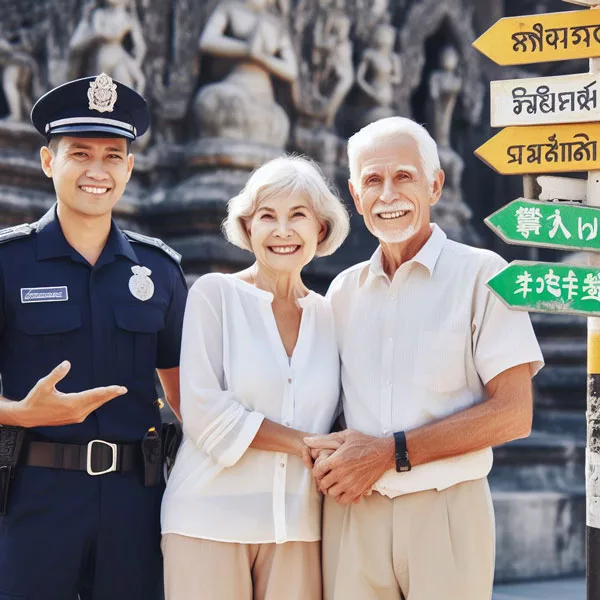
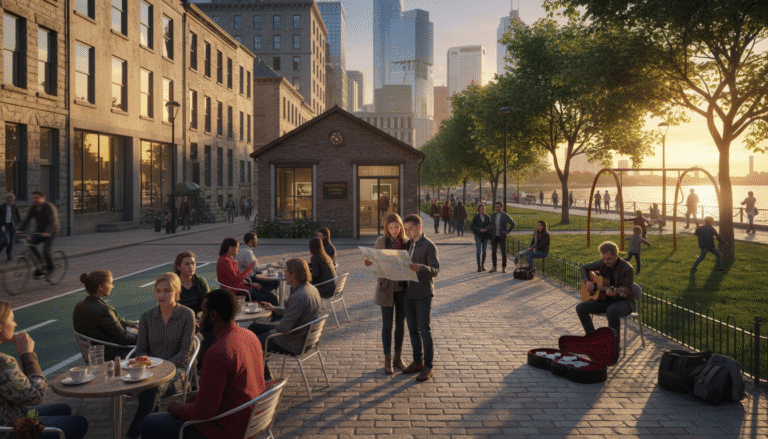
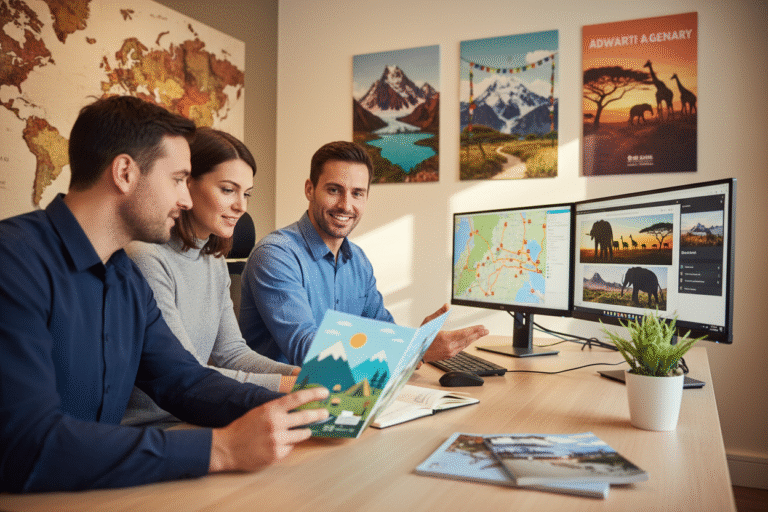
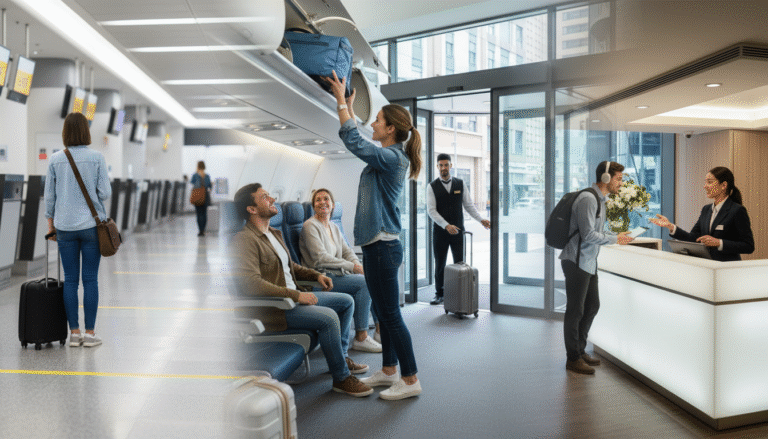

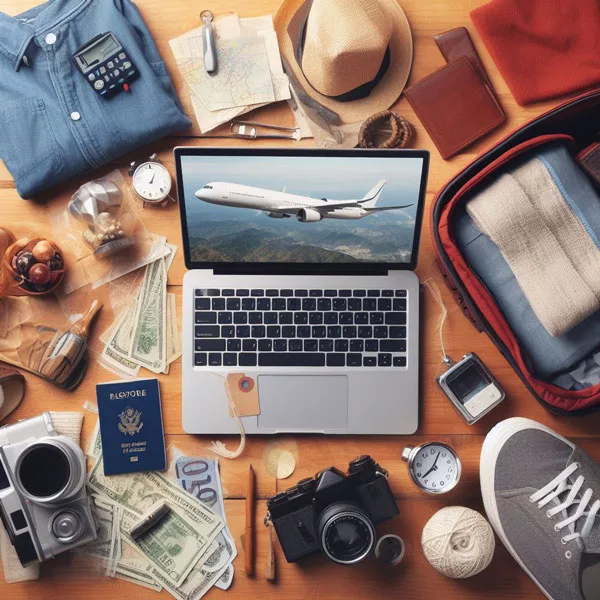
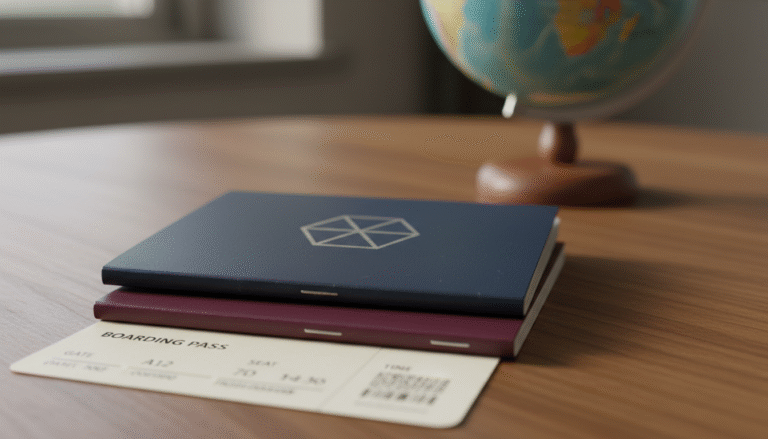
2 Comments
Comments are closed.